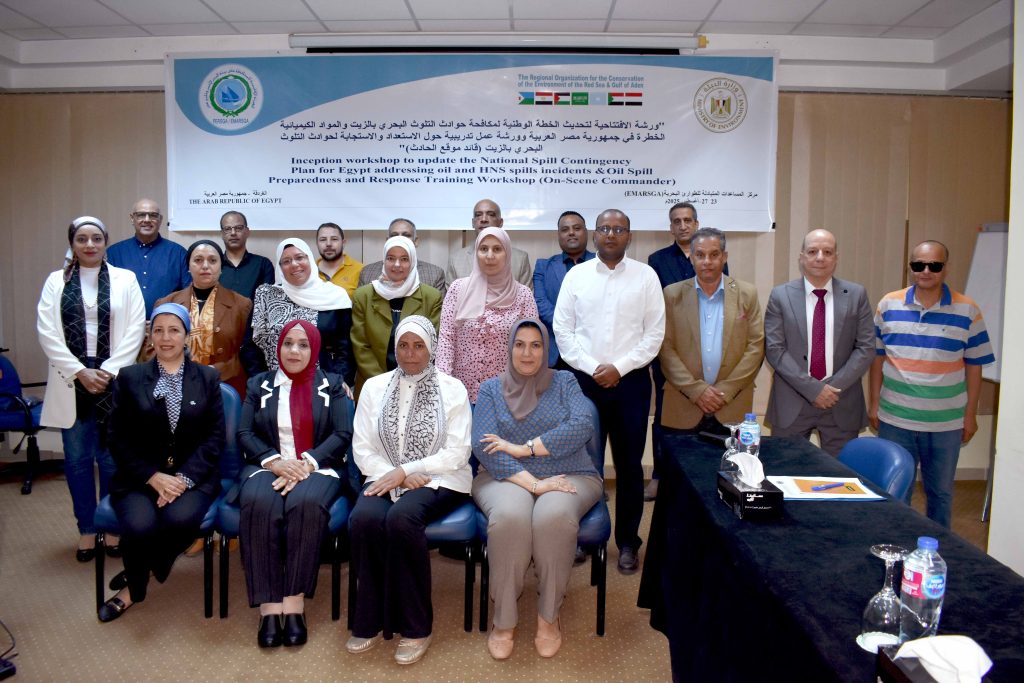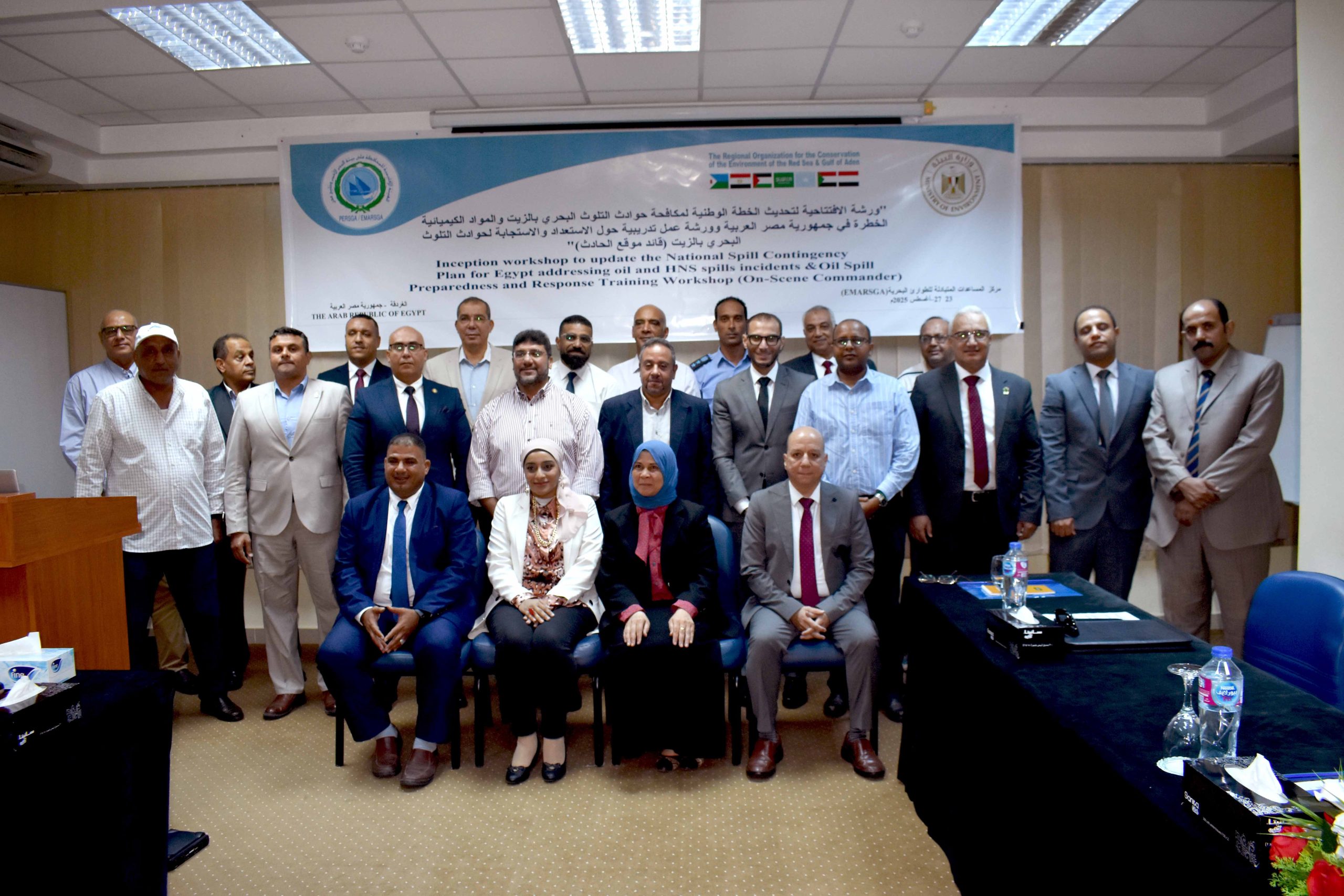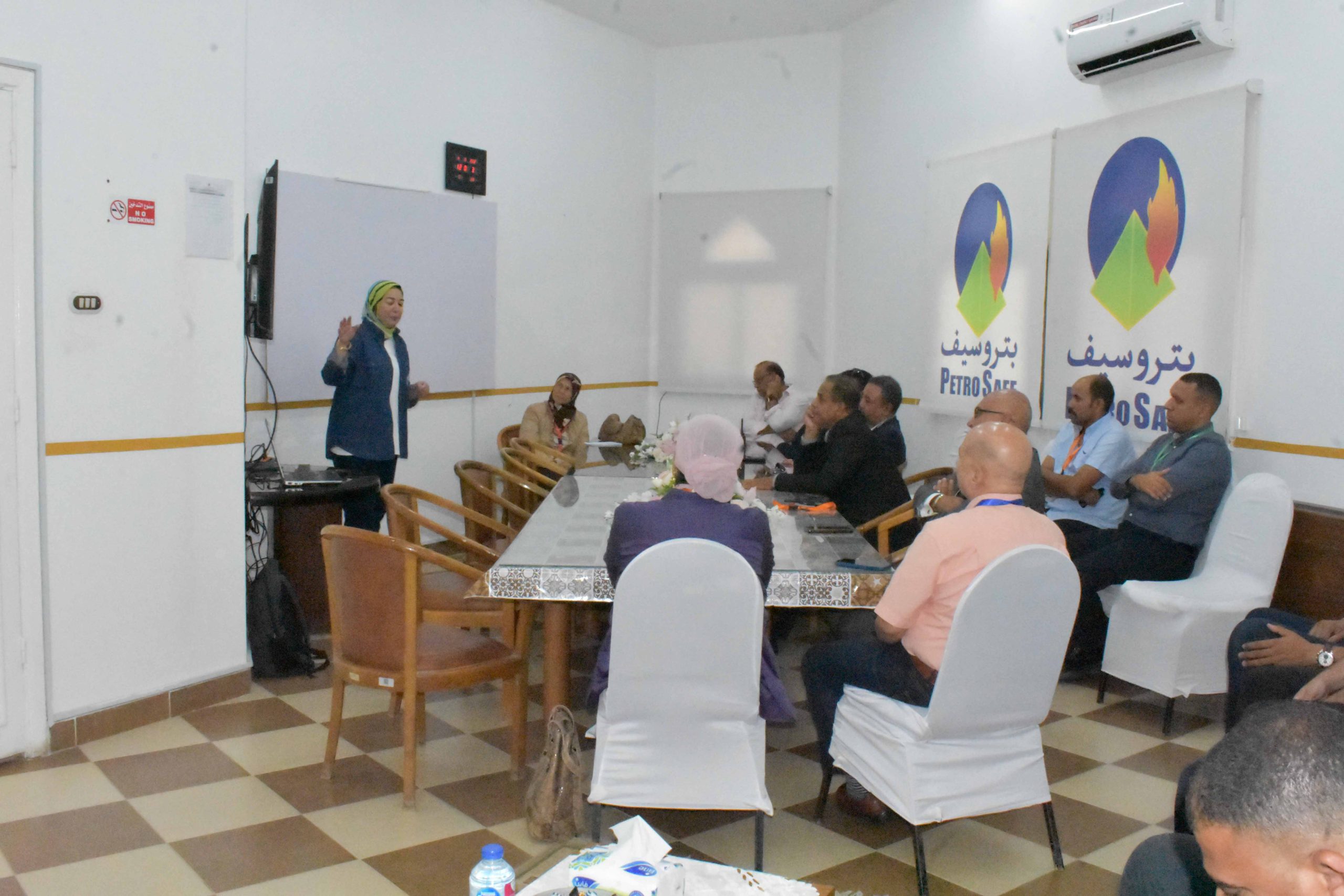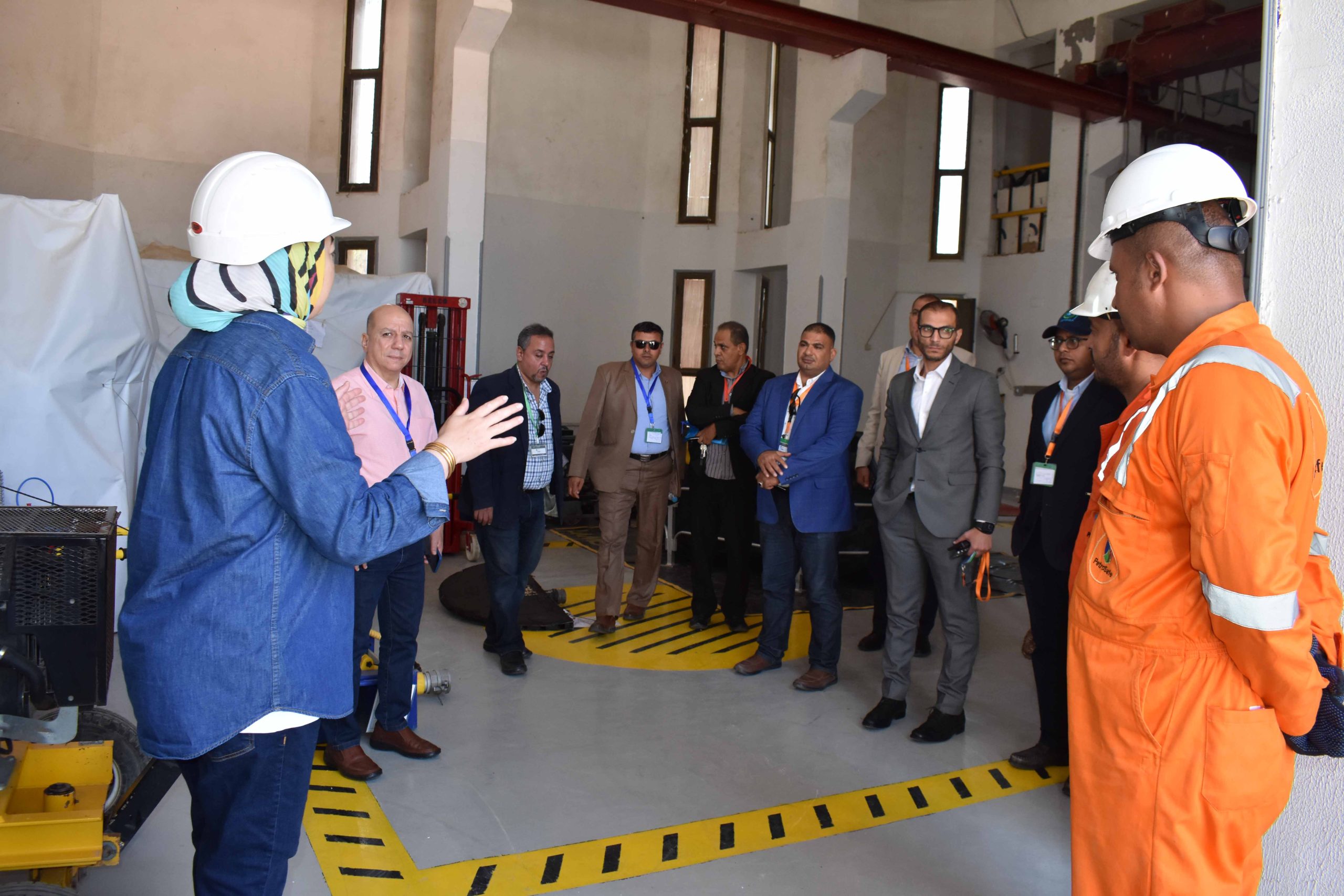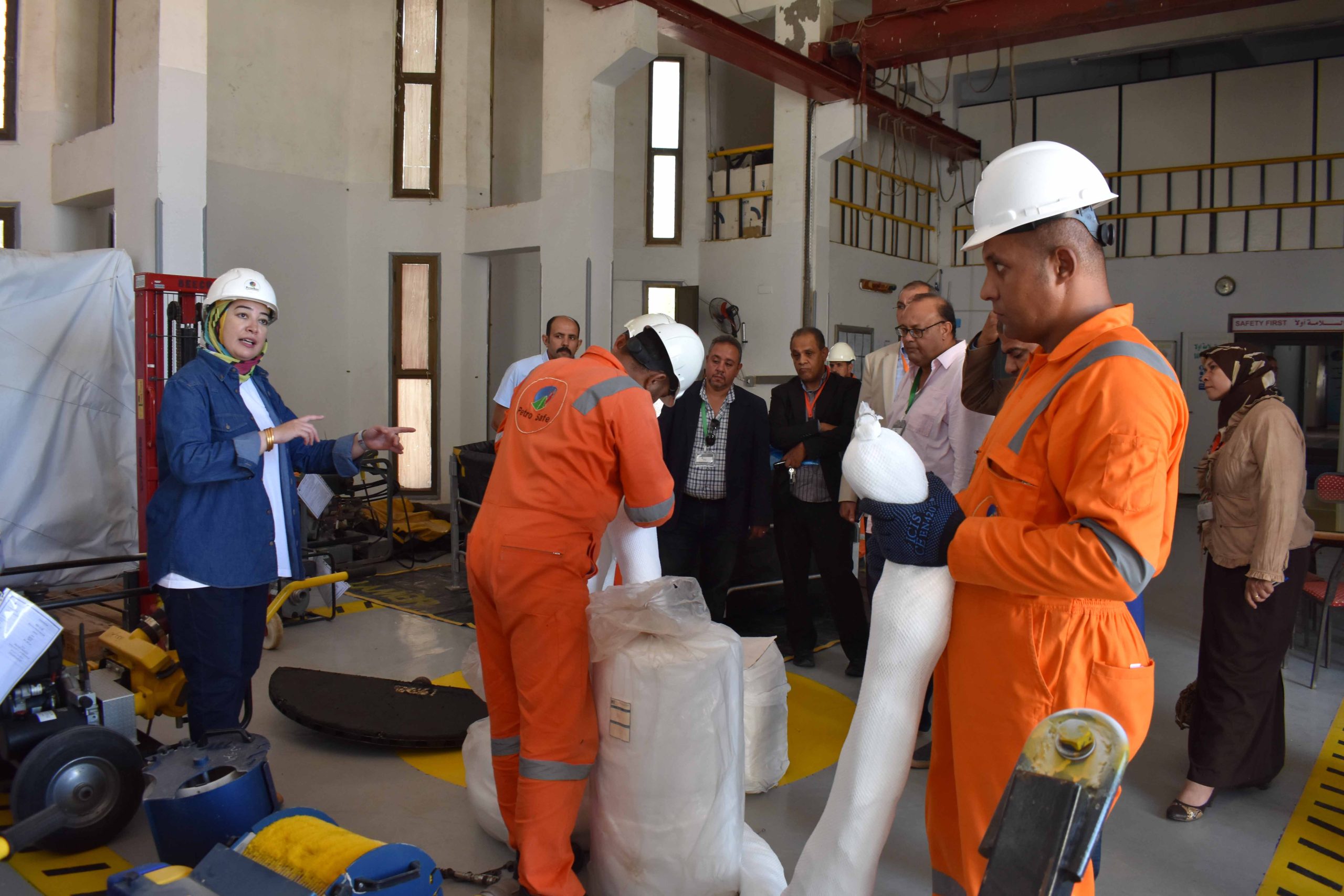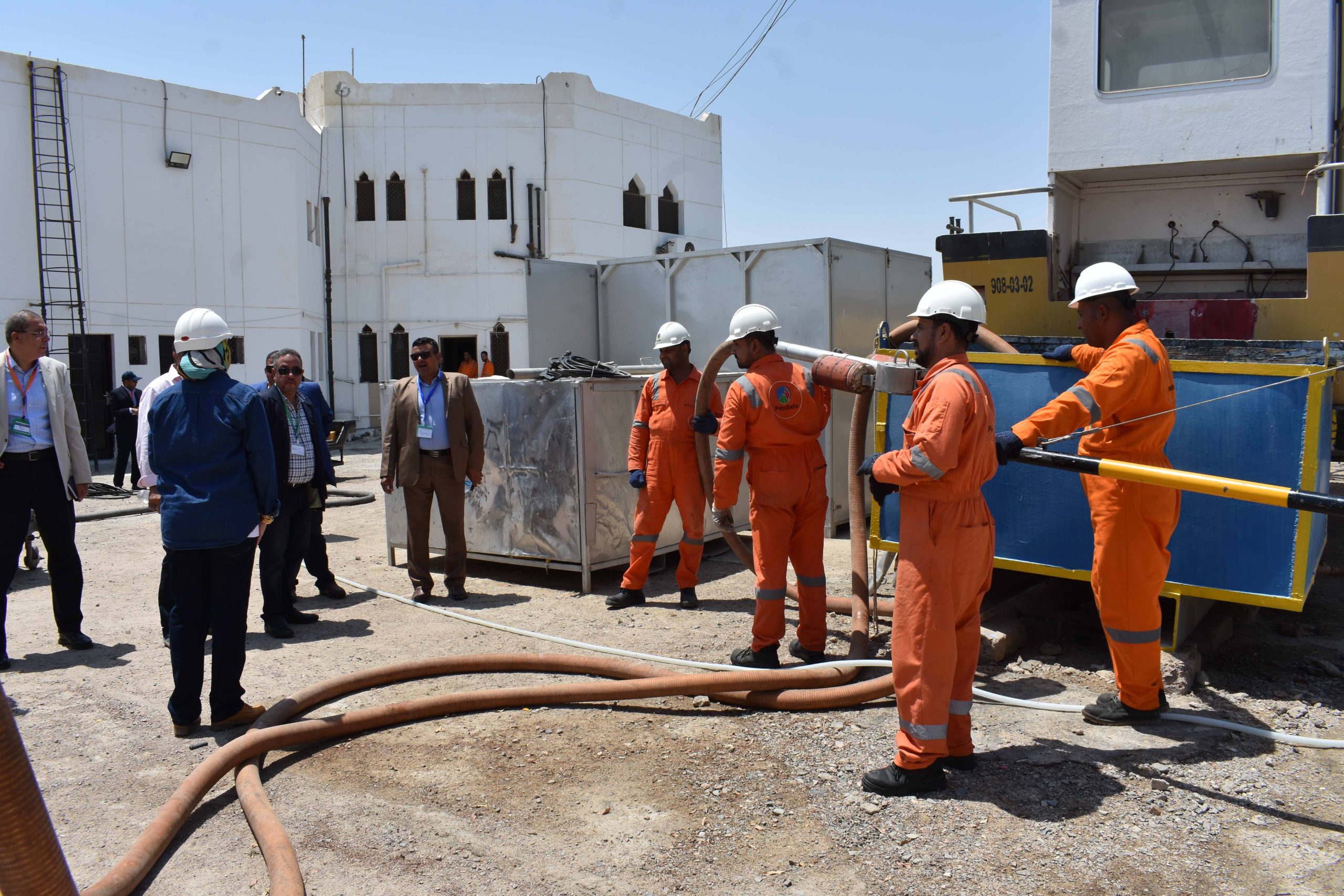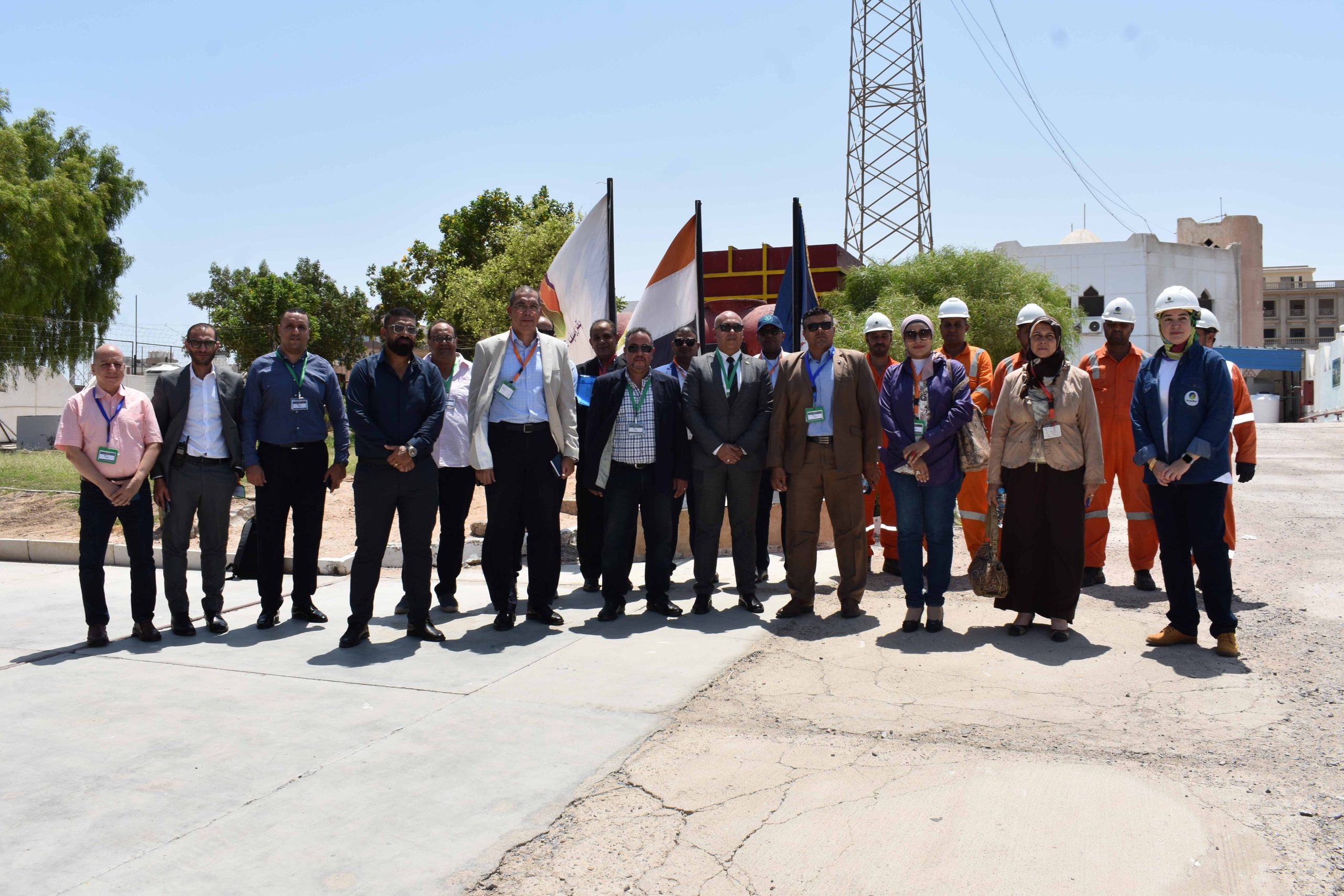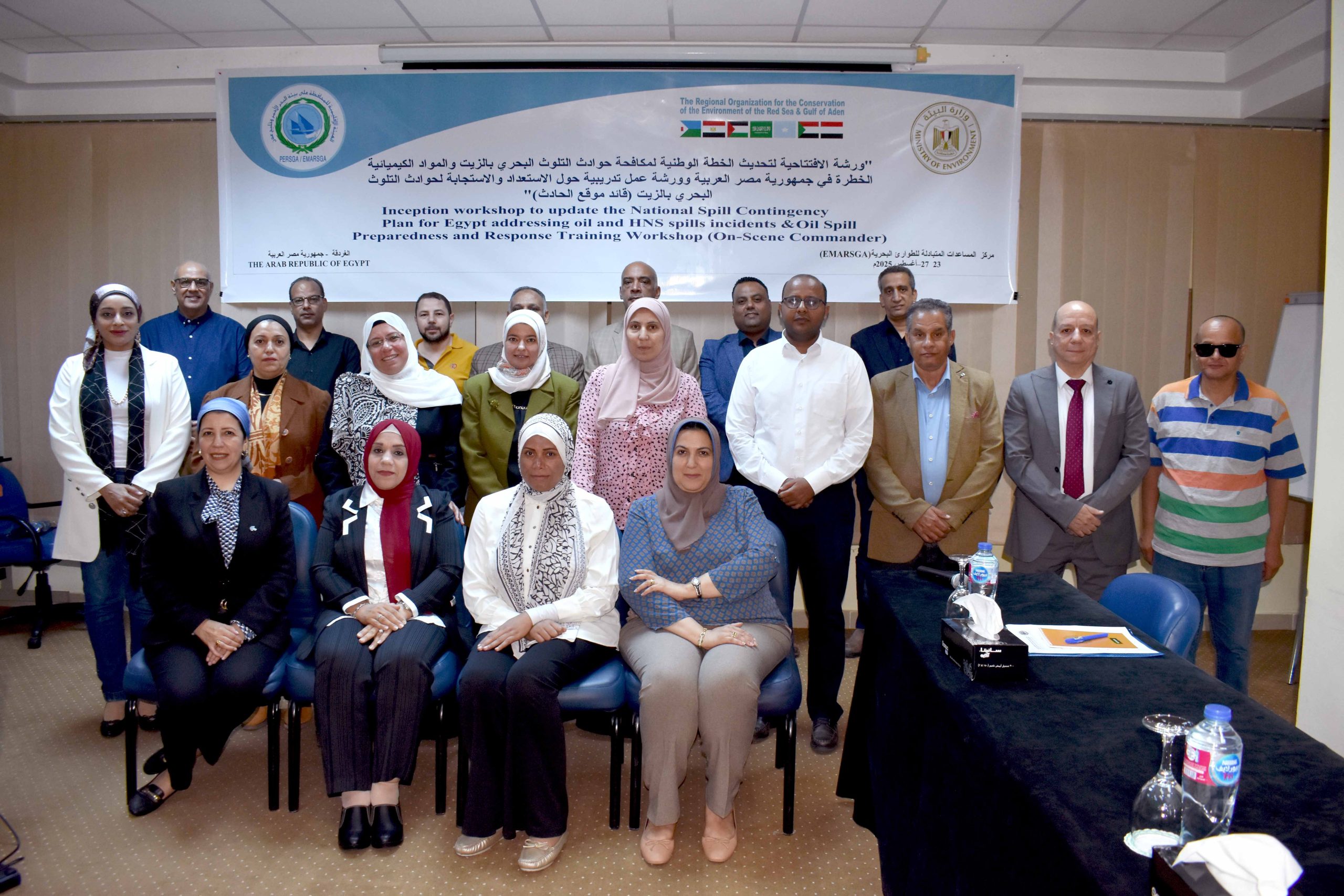From 25 to 27 August 2025, PERSGA, in collaboration with the Egyptian Environmental Affairs Agency (EEAA) and hosted at the EMARSGA Center in Hurghada, organized a national training workshop on Oil Spill Risk Assessment and Response. The activity forms part of the ongoing process to update Egypt’s National Oil Spill Contingency Plan (NOSCP), including the Hazardous and Noxious Substances (HNS) component.
The workshop brought together 20 environmental specialists from EEAA and aimed to refresh technical expertise, provide hands-on practical training, and reinforce coordination mechanisms to strengthen preparedness for marine pollution emergencies. Sessions delivered by a national consultant and experts from PERSGA/EMARSGA covered oil spill prevention and preparedness, emergency response strategies, decision-making and incident command systems, and inter-agency coordination.
A central feature of the training was the use of advanced oil and chemical spill modeling systems operated at the EMARSGA Center, complemented by real case studies from the southern Red Sea (RUBYMAR, ETERNITY C, and Magic Seas). These examples highlighted the complexity of pollution incidents involving both oil and chemicals and underscored the importance of timely, well-coordinated responses. Participants also engaged in tabletop simulations and spill plotting exercises.
The training was preceded by a two-day technical workshop involving representatives from the Egyptian Navy, Coast Guard, transport authorities, academia, and EEAA. Discussions focused on the findings of the gap analysis report on national spill risks, assessed the current levels of preparedness, and collected updated data to guide the NOSCP revision—particularly the HNS component, in line with the regional contingency plan and the international guidelines.
As part of the program, participants conducted on 24 August a field visit to the Marine Oil Pollution Control Center in Hurghada, affiliated with Petrosafe Company, where they reviewed the available stockpiles, equipment, and daily operations used to respond to Tier I and Tier II oil spills along Egypt’s Red Sea coastline.
Both activities were carried out under the framework of the World Bank–funded SFISH Project, implemented by PERSGA in the Red Sea and Gulf of Aden region, to strengthen national and regional readiness for marine pollution incidents. The SFISH project development objectives (PDOs) are to strengthen capacities and regional collaboration in management of marine fisheries and aquaculture in the Red Sea and Gulf of Aden region.

